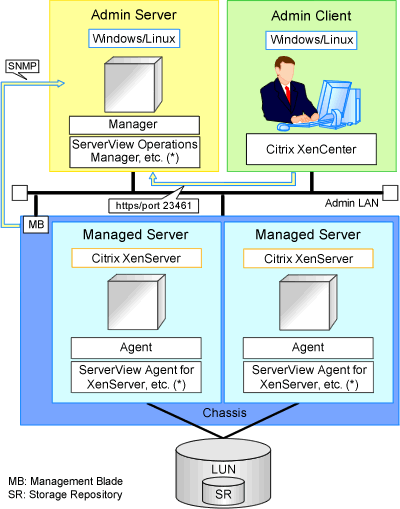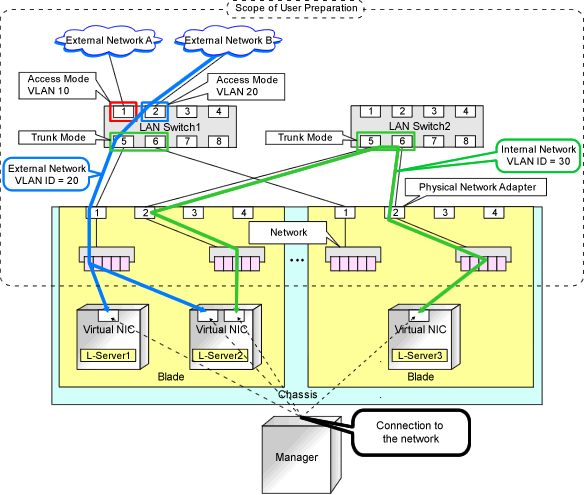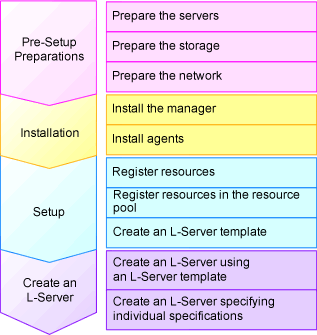This section explains a system configuration.
Example of System Configuration
System configuration examples are given below.
Figure E.31 Example of System Configuration

* Note: For details of the required software, refer to "6.1.2.4 Required Software" in the "Overview".
Network Configuration Example
An example network configuration using Citrix XenServer is given below:
In Resource Orchestrator, when creating a virtual L-Server (VM guest), virtual NICs and the network created on XenServer are automatically connected.
Create the network in XenServer using Citrix XenCenter for each VLAN-ID in advance. Use the same network name when using the same VLAN-IDs for VM hosts.
Figure E.32 Network Configuration Example

L-Server Creation Procedure
Use the following procedure to create L-Servers:
Figure E.33 Flow of L-Server Creation

For details on pre-setup preparations, refer to "E.8.2 Preparations for Servers".
For details on how to install Resource Orchestrator, refer to "2.1 Manager Installation" in the "Setup Guide CE".
For details on setup, refer to "7.2 Registering Resources with Resource Orchestrator" in the "Setup Guide CE" and "8.2 Installing Software and Registering Agents on VM Hosts" in the "User's Guide for Infrastructure Administrators (Resource Management) CE".
For details on installing agents, refer to "2.2 Agent Installation" in the "Setup Guide CE".
For details on how to create an L-Server, refer to "7.5 Creating L-Servers" in the "Setup Guide CE".